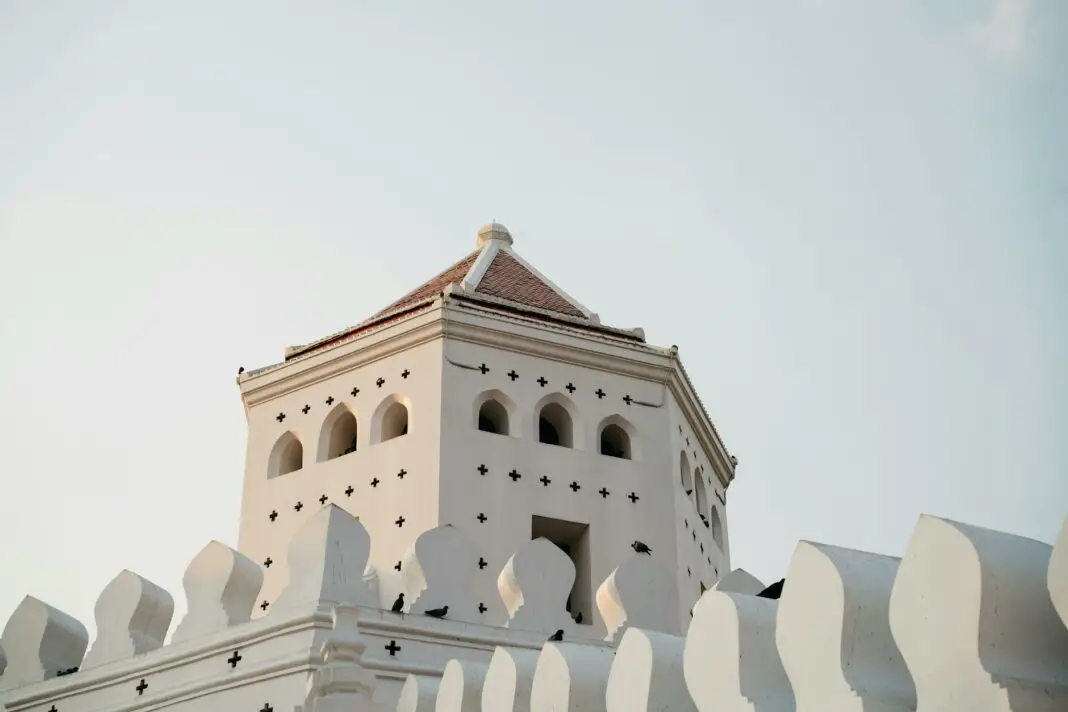When we think of Thailand, images of pristine beaches, exotic cuisine, and vibrant culture come to mind. However, there’s a profoundly enriching layer to this Southeast Asian gem that often goes unnoticed: its traditional crafts. In this blog post, we will not only delve into your breathtaking trip to Thailand but also explore the intriguing question: Are traditional Thai crafts workshops worth your travel time? In doing so, we will uncover the cultural tapestry that makes learning these crafts a unique experience unlike any other.
Moreover, we will provide you with a detailed guide to help navigate through the intricacies of Thailand’s craft workshops, ensuring you maximize your travel experience. From the bustling markets of Chiang Mai to the serene surroundings of Pai, you will discover how immersing yourself in local craftsmanship can turn your vacation into a transformative journey. Let’s dive into the heart of Thailand and uncover the beauty of its traditional crafts.
Table of Contents
- The Art of Thai Crafts
- Exploring Traditional Workshops
- A Deeper Cultural Immersion
- Affordability and Value
- Personal Growth and Skill Development
- Actionable Insights for Travelers
- Beyond the Craft: Connections with Locals
- Embrace the Craft: An Invitation to Action
- Frequently Asked Questions
The Art of Thai Crafts
Thai crafts are deeply rooted in tradition, showcasing a unique blend of artistry and cultural significance that has been preserved for generations. From intricate silk weaving and captivating pottery to delicate wood carving, each craft tells a story about the land and its people. Visitors to Thailand are often taken aback by this rich heritage, making it imperative to explore these handmade treasures firsthand. You actually get to experience the artistry that goes into creating each piece, which is a transformative experience that no store-bought souvenir can replicate.
As you delve into the world of Thai crafts, your senses will awaken to the vibrant colors, textures, and sounds that encompass each creative process. Additionally, learning from skilled artisans opens up windows into the teachings passed down through families, centuries of knowledge wrapped in every brush stroke, slice of wood, or woven silk. Witnessing their passion illuminates the cultural narrative that shapes these crafts—driving home the point that investing your travel time in workshops is not just a fun activity, but a valuable cultural exchange worth pursuing.
Exploring Traditional Workshops
In Thailand, the landscape is dotted with numerous craft workshops that cater to both locals and enthusiastic travelers alike. These workshops often welcome participants regardless of skill level, making it easy for anyone to join in and harness new abilities. With a wide variety of options available, from traditional Thai cuisine courses to pottery-making lessons, everyone can find something appealing. Each workshop brings a unique opportunity to learn, creating an environment that fosters creativity and allows for ample hands-on experience.
Every choice of workshop offers insights into the specific techniques adopted by artisans, showcasing the mastery behind the craft. Chiang Mai stands out as a hub for these workshops, where you can witness the meticulous process of silk weaving or learn the intricate art of paper-making using natural materials. Participants frequently find themselves completely absorbed and exhilarated by the craft, igniting a love for artistic pursuits they may have never considered before. Thus, venturing into a workshop can become a catalyst for transforming leisure time into something truly impactful.
A Deeper Cultural Immersion
Engaging in traditional crafts provides an unparalleled opportunity for genuine cultural immersion. These hands-on experiences allow visitors to connect authentically with local customs, indulge in shared rituals, and even build lasting relationships with artists. Engaging with artisans provides invaluable insights into their daily lives while enriching your understanding of Thai culture. This undeniable connection contrasts sharply with merely observing cultural performances from a distance—workshops invite you inside the craft community and allow you to form bonds that transcend borders.
Imagine sitting side-by-side with a master craftsman, listening intently to their stories, and absorbing the cultural nuances woven into every stitch, stroke, and shaping of clay. This connection adds a personal layer to your travels—transforming the experience into an enriching narrative that you will cherish. In being part of Thailand’s cultural tapestry, you not only gain memories but also a sense of belonging, elevating your trip beyond the standard tourist experience.
Affordability and Value
One might wonder about the costs associated with these workshops and whether the experience justifies the financial commitment. Fortunately, Thai traditional craft workshops are generally very affordable, allowing you to partake without breaking the bank. Many sessions last just a few hours or a full day, so you can easily fit these enriching experiences into your travel itinerary without significant expense.
Moreover, the value derived from these workshops extends beyond the monetary cost; you leave with tangible skills, impressive creations, and memories of cultural exchange. It’s essential to remember that investing your time and money in these experiences ultimately contributes to supporting local economies, helping to preserve these traditional crafts for future generations. This dual benefit of affordability and value compellingly underscores why workshop participation should be on every traveler’s agenda.
Personal Growth and Skill Development
Participating in traditional crafts workshops can be incredibly rewarding on a personal level. As you embrace new skills, you cultivate creativity in ways that demand experimentation and exploration. What might start as a simple crafting lesson can evolve into a transformative experience that fosters self-confidence. Whether you’re molding clay into beautiful pottery or delicately weaving luxurious silk, each task challenges you to step out of your comfort zone and embrace your artistic capabilities.
Additionally, these workshops often promote mindfulness as you focus on the intricate processes. Engaging in crafts can be meditative; it encourages you to slow down and appreciate the present moment, offering a welcome break from the fast-paced nature of travel. Ultimately, the skills you gain go beyond the craft itself. You learn patience, perseverance, and the importance of process, enriching not only your travel experience but also your personal growth.
Actionable Insights for Travelers
To maximize your exposure to traditional Thai crafts during your visit, consider the following actionable tips. First, research workshops in advance—many can fill up quickly, especially during peak tourist seasons. By booking ahead, not only do you secure your spot, but you can also prepare yourself for the exciting journey that awaits.
Also, don’t hesitate to engage with the artisans! Ask questions, show genuine interest in their craft, and absorb the knowledge they impart. Many artisans appreciate the opportunity to share their skills, and the more you engage, the more rewarding the experience will be. Sharing your own experiences and stories can lead to rich exchanges that deepen your understanding.
Lastly, consider investing in materials or supplies that allow you to continue exploring your newfound skills when you return home. This creates a lasting connection to your travels and can turn into a cherished hobby beyond your trip.
Beyond the Craft: Connections with Locals
One of the most profound elements of participating in traditional crafts workshops is the opportunity to build authentic connections with local artisans and other participants. These experiences anchor your travel, transforming it from a passive observation to an interactive journey. It is often the locals themselves who breathe life into the crafts, sharing stories about their journey, traditions, and the community that surrounds them.
As you engage with participants from various backgrounds, you will find commonalities and shared experiences that foster a bond that transcends cultures. These connections can lead to friendships that last well beyond your time in Thailand, as social media provides a means to maintain these relationships. Furthermore, such interactions enrich not only your understanding of the craft but also highlight the importance of cultural exchange in today’s world.
Embrace the Craft: An Invitation to Action
Your trip to Thailand can be more than just sightseeing; it can be an authentic cultural experience that resonates long after your journey ends. Embracing traditional Thai crafts workshops is not only about creating art but also forging connections, mastering new skills, and gaining insights into a rich cultural heritage. As you reflect on your travels, consider how these experiences can contribute to your growth while supporting local communities.
Make a conscious choice to dive into the world of Thai crafts on your next journey, and you will be rewarded with stories, skills, and friendships that enrich your travel experiences in ways you never thought possible.
Frequently Asked Questions
What types of traditional crafts can I learn in Thailand?
There are various types of traditional crafts you can explore, including silk weaving, pottery, wood carving, and Thai cooking. Each workshop offers a unique experience and insight into specific craftsmanship.
Are workshops suitable for beginners?
Absolutely! Most workshops cater to all skill levels, making them accessible to beginners as well as those with experience.
How long do the workshops typically last?
Workshops can vary in duration, ranging from a couple of hours to a full day, allowing for flexibility in your travel plans.
Do I need to bring my own materials?
In most instances, materials will be provided by the workshop, allowing you to focus on learning and creating without the hassle of sourcing your own supplies.
Will I meet local artisans?
Yes! These workshops are often conducted by skilled local artisans who are eager to share their expertise and stories, enhancing your cultural experience significantly.
Image Credit: Pexels





